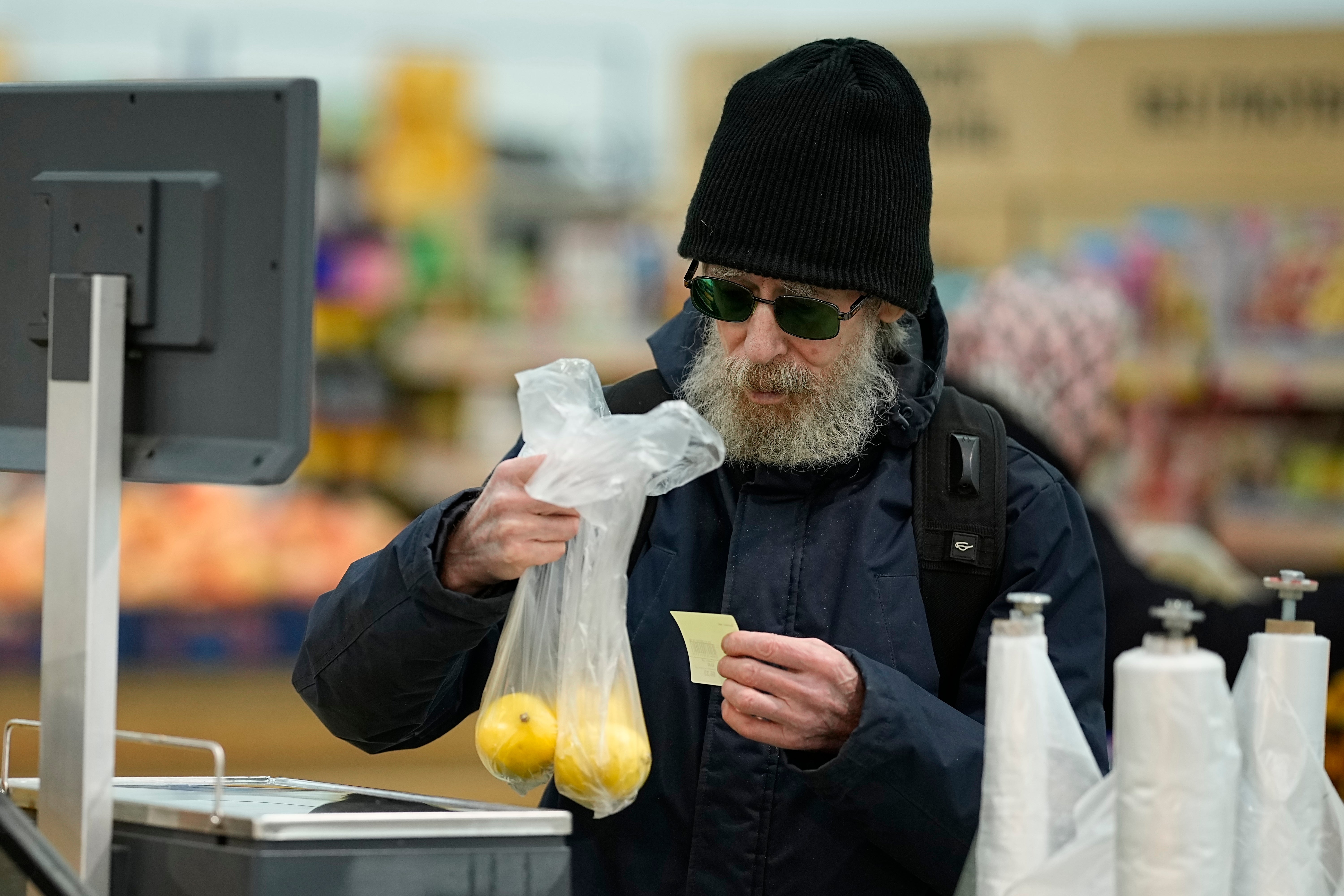Russian supermarkets are full of fruit, vegetables, cheese and meat. But shoppers can’t afford any of it
The Russian parliament has approved a 2024-2026 budget that earmarks a record amount for defense spending
Your support helps us to tell the story
From reproductive rights to climate change to Big Tech, The Independent is on the ground when the story is developing. Whether it's investigating the financials of Elon Musk's pro-Trump PAC or producing our latest documentary, 'The A Word', which shines a light on the American women fighting for reproductive rights, we know how important it is to parse out the facts from the messaging.
At such a critical moment in US history, we need reporters on the ground. Your donation allows us to keep sending journalists to speak to both sides of the story.
The Independent is trusted by Americans across the entire political spectrum. And unlike many other quality news outlets, we choose not to lock Americans out of our reporting and analysis with paywalls. We believe quality journalism should be available to everyone, paid for by those who can afford it.
Your support makes all the difference.The shelves at Moscow supermarkets are full of fruit and vegetables, cheese and meat. But many of the shoppers look at the selection with dismay as inflation makes their wallets feel empty.
Russia's Central Bank has raised its key lending rate four times this year to try to get inflation under control and stabilize the ruble's exchange rate as the economy weathers the effects of Russia's military operation in Ukraine and the Western sanctions imposed as a consequence.
The last time it raised the rate — to 15%, doubled that from the beginning of the year — the bank said it was concerned about prices that were increasing at an annualized pace of about 12%. The bank now forecasts inflation for the full year, as well as next year, to be about 7.5%.
Although that rate is high, it may be an understatement.
“If we talk in percentage terms, then, probably, (prices) increased by 25%. This is meat, staple products — dairy produce, fruits, vegetables, sausages. My husband can’t live without sausage! Sometimes I’m just amazed at price spikes," said Roxana Gheltkova, a shopper in a Moscow supermarket.

Asked if her income as a pensioner was enough to keep food on the table, customer Lilya Tsarkova said: “No, of course not. I get help from my children.”
Without their assistance, “I don’t know how to pay rent and food,” the 70-year-old said.
Figures from the state statistical service Rosstat released on Nov. 1 show a huge spike in prices for some foods compared with 2022 — 74% for cabbage, 72% for oranges and 47% for cucumbers.
The Russian parliament has approved a 2024-2026 budget that earmarks a record amount for defense spending. Maxim Blant, a Russian economy analyst based in Latvia, sees that as an indication that prices will continue to rise sharply.
“It is simply impossible to solve the issue of inflation in conditions ... when the military-industrial complex receives unlimited funding, when everything they ask for is given to them, when the share of this military-industrial complex in the economy grows at a very rapid pace," he told The Associated Press.
The central bank's rate hikes have slightly cooled the ruble's exchange rate slide — the rate is now about 88 to the U.S. dollar from over 100 earlier. But that's still far higher than in the summer of 2022, when it was about 60 to the dollar.
That keeps the cost of imports high, even as import possibilities shrink due to Western sanctions.